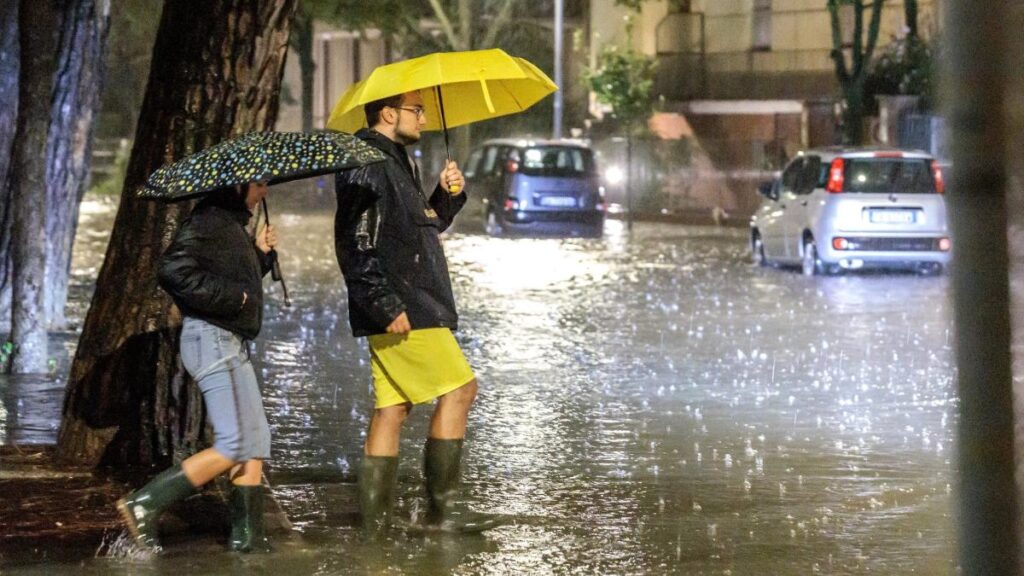Storm Boris is ravaging northeastern and central Italy, days after causing widespread flooding in Central Europe.
More than 1,000 residents in the northeastern Emilia Romagna region were evacuated, while towns in Italy’s central Marche region reported severe flooding and disruption. There were no reports of casualties.
Schools across Emilia Romagna have been closed, some roads have been hit by landslides and train services have been severely disrupted.
Authorities warned residents not to stay in their basements but to move to the upper floors of their homes.
Schools, libraries and parks in Ravenna were closed and the University of Bologna cancelled exams and classes.
The city of Faenza was hit hardest, with the water level of the two rivers that flow through it rising rapidly overnight.
Residents quoted by local media said they had to leave their homes in rubber boats in the middle of the night. High river levels have also caused the sewage system to overflow.
Authorities in nearby Bologna reported on Thursday morning that river levels in the city are under control, though a red weather alert remains in place for most of the region until Friday.
For residents of Emilia-Romagna, Storm Boris is an echo the severe – and deadly – flooding that hit the region just over a year ago.
In May 2023, 13 people died when six months’ worth of rain fell in one and a half days, causing more than 20 rivers to burst their banks.
Tens of thousands of people were forced to flee their homes and the floods caused billions of euros in damage.
Italy is the latest country to face the wrath of Storm Boris, a low-pressure area that passed through Poland, Czech Republic, Romania and Austriain which at least 23 people were killed.
While the worst appears to be over in much of the region, water levels on the Danube in Hungary are still rising. Prime Minister Victor Orban said on Wednesday that water levels in Budapest were expected to peak on Saturday afternoon or evening, but that they would be lower than the record levels of 2013.
The leaders of Poland, the Czech Republic, Slovakia and Austria will meet European Commission President Ursula von der Leyen in Wroclaw later today to discuss aid to the flood-hit region.
The city in southwestern Poland has also been threatened for days by the high water level of the river.
Recent events in Central Europe are consistent with expectations of more extreme rainfall in a warming world. However, it is not yet possible to quantify precisely to what extent climate change plays a role in this.
Climate scientists have been warning for years about extreme rainfall like this, which can occur as the Earth warms.







